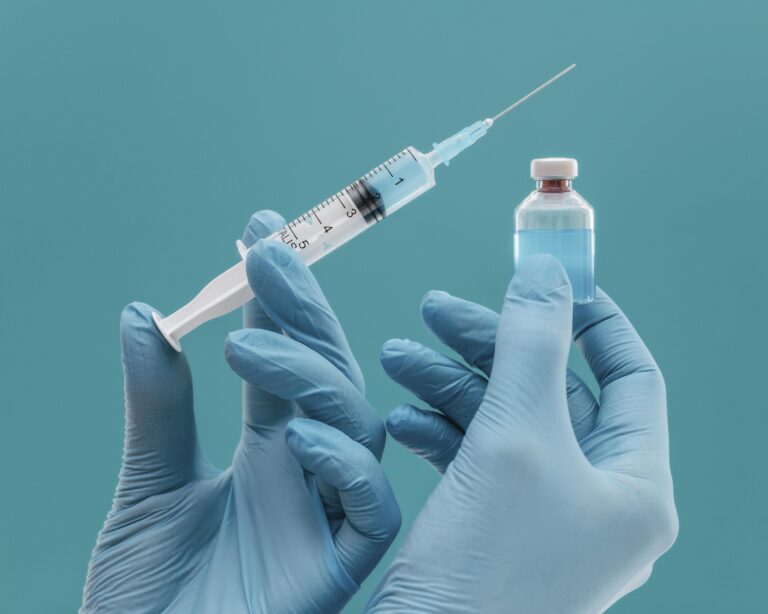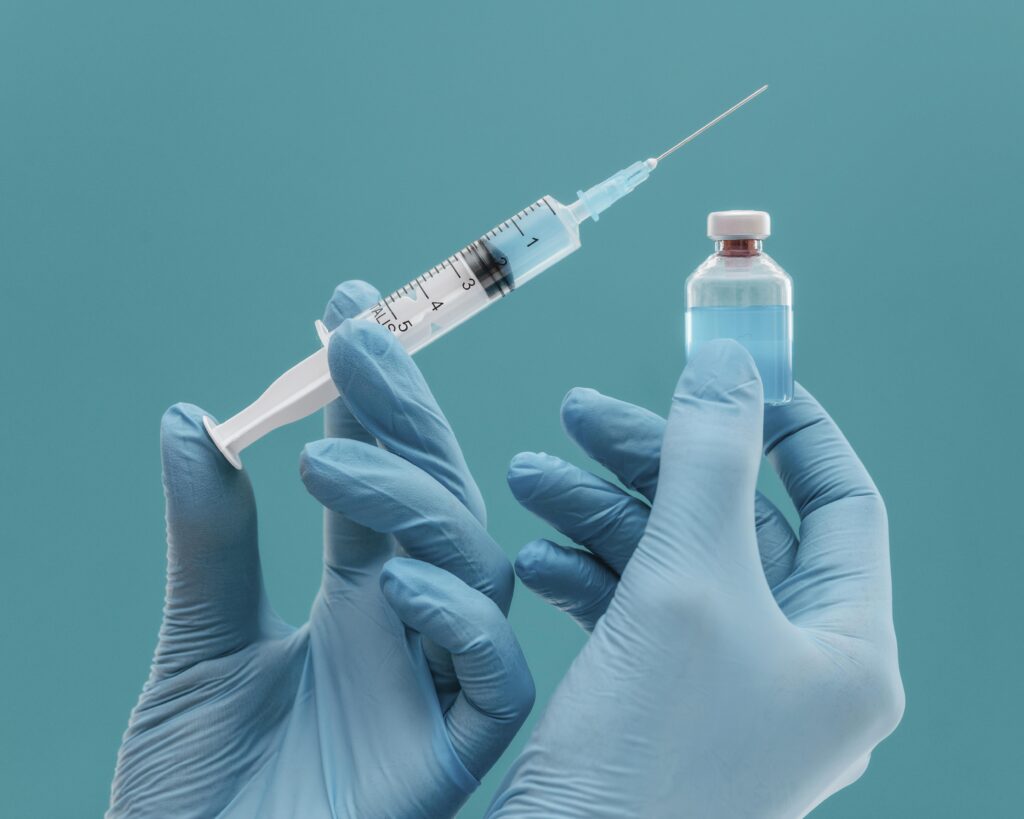
Introduction to Monkeypox
Monkeypox, a viral disease that was once considered rare, has been making headlines in recent years. With outbreaks occurring sporadically around the world, understanding the importance of vaccination against this infectious illness is crucial. In this blog post, we will dive into the fascinating history of the monkeypox vaccine and explore its effectiveness, safety, and availability. So grab a cup of coffee and join us as we unravel the mysteries surrounding monkeypox and its lifesaving vaccine!
History of the Monkeypox Vaccine

The history of the monkeypox vaccine dates back to the 1970s when the first cases of monkeypox were reported in humans. Initially, it was believed that this disease only affected monkeys and other animals, but soon it became evident that humans could also become infected.
Scientists and researchers began working tirelessly to develop a vaccine to protect against monkeypox. After years of rigorous testing and clinical trials, the first monkeypox vaccine was licensed for use in 2003.
The initial vaccine relied on a live vaccinia virus, which is similar to the one used in smallpox vaccination. However, concerns about its safety led to the development of newer versions of the vaccine using non-replicating viruses or viral components.
Over time, these advancements have resulted in more effective and safer vaccines against monkeypox. Today, there are several different types of vaccines available for preventing this potentially debilitating disease.
These vaccines work by stimulating an immune response in individuals who receive them. By introducing harmless pieces or weakened forms of the virus into their bodies, their immune systems learn how to recognize and fight off future infections with monkeypox.
As with any medical intervention, there can be potential side effects associated with receiving a Monkeypox Vaccine. It’s important for individuals considering vaccination to consult with healthcare professionals who can provide accurate information about possible risks and benefits based on individual circumstances.
In conclusion The development and availability of Monkeypox Vaccines have been crucial steps forward in protecting people from this dangerous viral infection. As we continue our efforts to prevent infectious diseases like Monkeypox infections at large scale through vaccinations, it is essential that we stay updated on current research findings regarding efficacy, safety ,and new developments related to these vaccines
Types of Monkeypox Vaccines
Types of Monkeypox Vaccines:
- Live Attenuated Monkeypox Vaccine: This type of vaccine contains a weakened form of the monkeypox virus. It can stimulate an immune response without causing severe illness. The live attenuated vaccine is administered through a single injection and has been shown to provide long-lasting protection against monkeypox.
- Inactivated Monkeypox Vaccine: Unlike the live attenuated vaccine, this type of vaccine contains inactivated or killed forms of the monkeypox virus. It works by stimulating an immune response without actually causing infection. The inactivated vaccine is typically administered through multiple injections over a period of time.
- Recombinant Monkeypox Vaccine: This newer type of vaccine utilizes genetic engineering techniques to create a modified version of the monkeypox virus that cannot cause disease but still stimulates an immune response. The recombinant vaccine offers potential advantages such as improved safety and ease of production.
- Combination Vaccines: Some vaccines may combine protection against multiple diseases, including monkeypox, into a single shot. These combination vaccines are designed to reduce the number of injections required while still providing effective immunity.
It’s important to note that each type of monkeypox vaccine has undergone rigorous testing for safety and efficacy before being approved for use in humans. Consult with healthcare professionals or public health authorities to determine which specific type(s) are recommended in your area based on factors such as age, medical history, and risk factors related to exposure to monkeypox.
Effectiveness and Safety of the Vaccine
Effectiveness and Safety of the Vaccine
The monkeypox vaccine has proven to be highly effective in preventing the spread of this viral disease. Extensive research and clinical trials have shown that the vaccine provides a robust immune response, protecting individuals from getting infected or experiencing severe symptoms if they do contract the virus.
One of the key factors contributing to its effectiveness is that it contains live attenuated monkeypox virus, which stimulates a strong immune response without causing illness. This helps your body recognize and fight off the actual virus if you are exposed to it in the future.
Moreover, studies conducted on vaccinated individuals have demonstrated high levels of protection against both primary infection and subsequent transmission. This means that not only does getting vaccinated safeguard you from contracting monkeypox yourself, but it also reduces the risk of spreading it to others around you.
In terms of safety, extensive testing ensures that vaccines go through rigorous quality control measures before being made available for public use. Adverse reactions are rare, with most side effects being mild and temporary such as soreness at the injection site or low-grade fever.
It’s important to note that like any medical intervention, there can be some risks associated with vaccination. However, these potential risks are far outweighed by the benefits provided by immunization against monkeypox.
To ensure safety and efficacy standards remain high, ongoing monitoring is conducted post-vaccination. This allows health authorities to promptly identify any adverse events or changes in efficacy patterns so appropriate action can be taken swiftly.
Choosing to get vaccinated against monkeypox is an essential step in safeguarding your own health as well as protecting vulnerable populations from this potentially serious viral infection. Consult with your healthcare provider for more information about vaccination options specific to your situation!
Side Effects and Precautions
Side Effects and Precautions
When it comes to any vaccine, including the monkeypox vaccine, it’s important to be aware of potential side effects and take necessary precautions. While the majority of people who receive the monkeypox vaccine experience no adverse reactions, there are a few possible side effects to keep in mind.
Common side effects include soreness or redness at the injection site, mild fever, and muscle aches. These symptoms usually subside within a couple of days and can be managed with over-the-counter pain relievers if needed.
In rare cases, more serious side effects may occur. These can include allergic reactions such as difficulty breathing or swelling of the face and throat. If you experience any concerning symptoms after receiving the vaccine, it is essential to seek medical attention immediately.
It is also important for certain individuals to exercise caution before receiving the monkeypox vaccine. Pregnant women should consult their healthcare provider before getting vaccinated as there is limited data on its safety during pregnancy. People with weakened immune systems or those taking immunosuppressive medications should also speak with their doctor beforehand.
By being informed about potential side effects and taking necessary precautions, you can ensure that your experience with the monkeypox vaccine is safe and effective in protecting against this contagious disease.
Availability and Cost of the Vaccine
Availability and Cost of the Vaccine
Obtaining a monkeypox vaccine is an essential step in protecting oneself from this infectious disease. But what exactly is the availability and cost of the monkeypox vaccine? Let’s dive into it.
Currently, there are two main types of monkeypox vaccines available: the live attenuated vaccine (LAV) and the non-replicating viral vector-based vaccine. Both vaccines have shown promise in providing immunity against monkeypox.
The availability of these vaccines may vary depending on your geographical location and healthcare system. In some countries, such as Nigeria, where outbreaks are more common, the government has made efforts to ensure widespread access to vaccination programs.
As for the cost of the monkeypox vaccine, it can also vary depending on various factors like location and healthcare provider. In some cases, governments may provide vaccinations free of charge or at a reduced cost as part of public health initiatives. However, in other instances, individuals may need to bear the full expense themselves.
It’s important to check with your local healthcare providers or government agencies to determine if they offer the monkeypox vaccine and inquire about any associated costs. Remember that investing in preventive measures like vaccination can help safeguard yourself and others from potential harm.
In conclusion,
Being aware of both availability and cost factors surrounding the monkeypox vaccine is crucial for making informed decisions regarding your health protection. By staying up-to-date with information provided by reputable sources like healthcare professionals or government agencies, you can take proactive steps towards preventing illnesses caused by this virus.
Conclusion: Importance of Getting Vaccinated Against Monkeypox
Conclusion: Importance of Getting Vaccinated Against Monkeypox
Ensuring our health and well-being is a top priority, and vaccinating ourselves against preventable diseases plays a crucial role in achieving that goal. Monkeypox, although rare, can have severe consequences if left untreated. The monkeypox vaccine serves as a powerful tool to protect ourselves and our communities from this potentially dangerous virus.
By understanding the history, types, effectiveness, safety measures, side effects, availability, and cost of the monkeypox vaccine discussed in this article, we are equipped with valuable knowledge about the importance of getting vaccinated. It is essential to stay informed about emerging diseases like monkeypox and take proactive steps to safeguard our health.
Getting vaccinated not only helps us individually but also contributes to public health by reducing the spread of infectious diseases. By building immunity through vaccination against monkeypox, we create what is known as herd immunity or community protection. This means that even those who cannot receive vaccines due to age or medical conditions are indirectly protected when a significant portion of the population has been immunized.
Remember that prevention is always better than cure. The discovery and development of effective vaccines like those for monkeypox provide us with an opportunity to minimize illness and its associated risks. By taking advantage of these advancements in healthcare science and technology, we can protect ourselves from potential harm.
In conclusion (without using “In conclusion”), it is important for individuals across all age groups to consult with healthcare professionals regarding their eligibility for receiving the monkeypox vaccine. Together let’s prioritize our health by staying informed about vaccinations that can help keep us safe from preventable diseases like monkeypox!